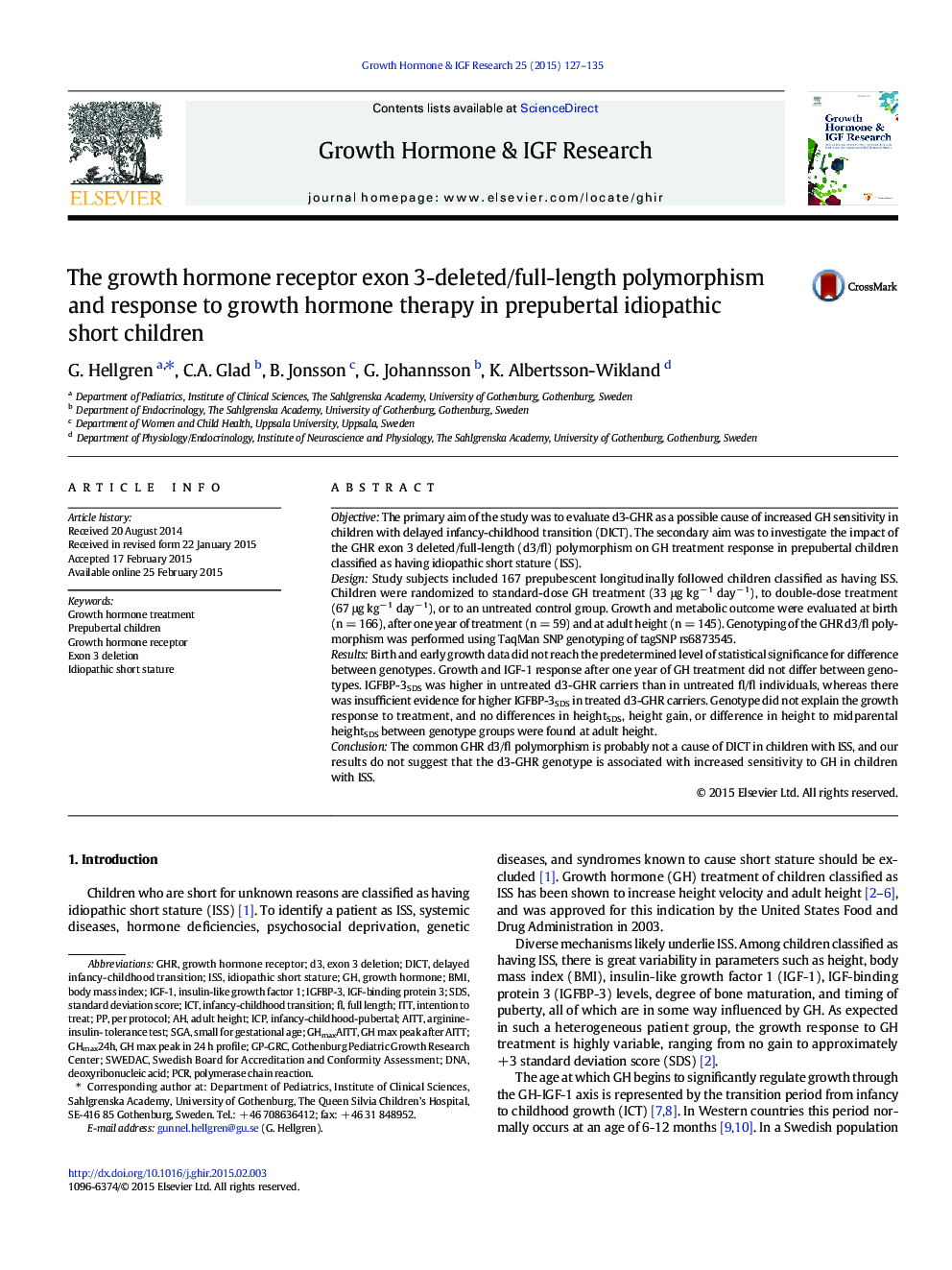| کد مقاله | کد نشریه | سال انتشار | مقاله انگلیسی | نسخه تمام متن |
|---|---|---|---|---|
| 2802595 | 1156694 | 2015 | 9 صفحه PDF | دانلود رایگان |
• The impact of GHR genotype in prepubertal, idiopathic short children.
• A tendency towards later transition from infancy to childhood growth in children homozygous for exon 3-deleted GHR.
• Higher levels of IGFBP-3 in GHR exon 3-deleted homo- and heterozygotes.
• No difference between GHR exon 3 genotypes in metabolic response to GH treatment.
• No difference between GHR exon 3 genotypes in growth response to GH treatment.
ObjectiveThe primary aim of the study was to evaluate d3-GHR as a possible cause of increased GH sensitivity in children with delayed infancy-childhood transition (DICT). The secondary aim was to investigate the impact of the GHR exon 3 deleted/full-length (d3/fl) polymorphism on GH treatment response in prepubertal children classified as having idiopathic short stature (ISS).DesignStudy subjects included 167 prepubescent longitudinally followed children classified as having ISS. Children were randomized to standard-dose GH treatment (33 μg kg− 1 day− 1), to double-dose treatment (67 μg kg− 1 day− 1), or to an untreated control group. Growth and metabolic outcome were evaluated at birth (n = 166), after one year of treatment (n = 59) and at adult height (n = 145). Genotyping of the GHR d3/fl polymorphism was performed using TaqMan SNP genotyping of tagSNP rs6873545.ResultsBirth and early growth data did not reach the predetermined level of statistical significance for difference between genotypes. Growth and IGF-1 response after one year of GH treatment did not differ between genotypes. IGFBP-3SDS was higher in untreated d3-GHR carriers than in untreated fl/fl individuals, whereas there was insufficient evidence for higher IGFBP-3SDS in treated d3-GHR carriers. Genotype did not explain the growth response to treatment, and no differences in heightSDS, height gain, or difference in height to midparental heightSDS between genotype groups were found at adult height.ConclusionThe common GHR d3/fl polymorphism is probably not a cause of DICT in children with ISS, and our results do not suggest that the d3-GHR genotype is associated with increased sensitivity to GH in children with ISS.
Journal: Growth Hormone & IGF Research - Volume 25, Issue 3, June 2015, Pages 127–135
